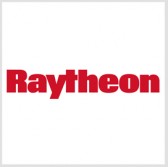 Raytheon has been selected to develop software under the third phase of a Defense Advanced Research Projects Agency program that seeks to expand the capacities of current U.S. military unmanned aircraft systems.
Raytheon has been selected to develop software under the third phase of a Defense Advanced Research Projects Agency program that seeks to expand the capacities of current U.S. military unmanned aircraft systems.
DARPA said Tuesday the Collaborative Operations in Denied Environment program aims to increase the effectiveness, flexibility and survivability of current air platforms when the systems perform long-distance engagements with mobile ground and maritime targets across denied and contested battlespace environments.
“CODE is working to develop a low-cost approach to upgrade legacy unmanned aircraft and make them more effective [through] algorithms and software that enable them to work together with minimal supervision,” said Jean-Charles Lede, a DARPA program manager.
“In Phase 3, we anticipate further expanding CODE capabilities by testing greater numbers of aircraft and highly autonomous behaviors in more complex scenarios.”
Raytheon evaluated the software open architecture and test-support framework of CODE during program’s second phase, which also involved Lockheed Martin-led flight tests.
RQ-23 Tigersark UAS platforms integrated with CODE hardware and software completed flight tests at the Naval Air Weapons Station China Lake in California, DARPA noted.




